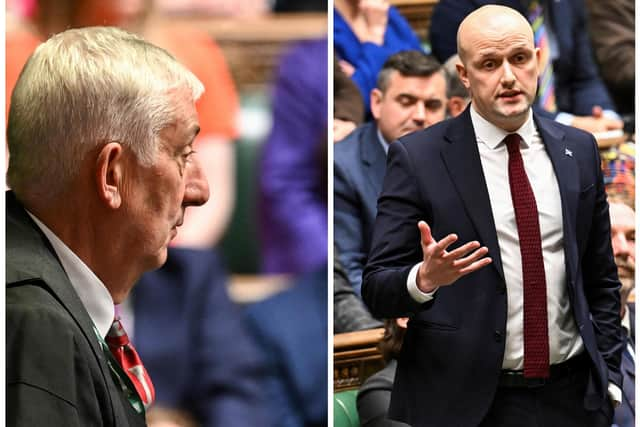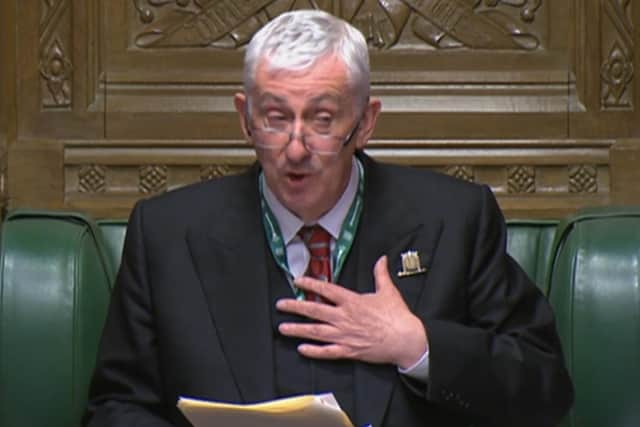Gaza ceasefire vote: Sir Lindsay Hoyle spat over ceasefire showed Parliament at its worse, and no party came out well
Wednesday was supposed to be SNP opposition day, where the party would lead a debate on Gaza, again calling for a ceasefire. Then there would be a vote.
At the beginning of the day, this seemed like what was going to happen, with the only possible risk being a Labour amendment also calling for a ceasefire, but removing the language of “collective punishment”.
Advertisement
Hide AdAdvertisement
Hide AdHowever, after Speaker Sir Lindsay Hoyle selected the Labour amendment, breaking precedent, all hell broke loose and his position is now under threat.


At the time of reporting, more than 50 MPs have signed a vote of no confidence in Sir Lindsay, including 20 SNP and 30 Tory politicians. The vote is unlikely to garner Government support, but it shows the cross-party fury at Thursday’s events.
More than one SNP MP told me this was the worst Parliament had been since Brexit, expressing frustration they couldn’t just work with Labour to find a compromise.
Others, however, are furious that on one of the few days dedicated to the SNP, they were unable to vote on their own motion. Speaking to MPs earlier in the day, however, there was an insistence the anger was overstated and, while they disagreed with his decision, the Speaker was not at risk and they understood his reasoning. Just a few hours later, SNP MPs were shouting in the Commons for him to resign.
Not only that, but they were also echoing anonymous claims that Labour had strong-armed Sir Lindsay, with claims they would remove him as Speaker if he didn’t select their amendment.


Both Labour and Sir Lindsay vehemently deny this, with the latter explaining it was about letting all MPs views be heard, following a flurry of death threats and the need for improved security after the last ceasefire vote.
However, even if you accept this premise, it means threats to MPs have dictated parliamentary procedure, rather than the rules or convention. If concerns over safety are influencing what issues MP can and can’t debate, that raises a much greater problem about how Parliament functions.
For the Tories, this could have all been avoided if they hadn’t dropped their own amendment, that called for a “humanitarian pause”. Perhaps knowing they didn’t have the votes, Leader of the House of Commons Penny Mordaunt said the Government would take no further part in proceedings, seemingly devolving foreign policy to the Labour party.
Advertisement
Hide AdAdvertisement
Hide AdLater MPs, including Jacob Rees-Mogg, complained they didn’t get to vote, they would have liked to make their views known, and accused the Deputy Speaker of not allowing them to have a say. In truth, they weren’t even in the chamber when a vote was called. As one Tory MP put it, “we aren’t as angry as we’re pretending to be”.
Labour leader Sir Keir Starmer meanwhile avoided what could have been a mighty rebellion and Parliament has, albeit not through votes, expressed its support for a ceasefire.
But this has not come through cross-party support or co-operation. Instead, it’s due to a breach of convention, which casts a shadow over it, and leaves Labour facing questions over whether it unduly influenced the Speaker.
Thursday should have been a day to highlight the real crisis in Gaza, and take a stance. Instead, once again, Parliament is talking about itself.
Comments
Want to join the conversation? Please or to comment on this article.
